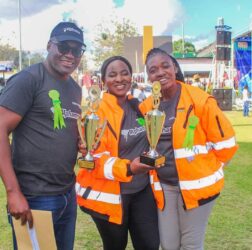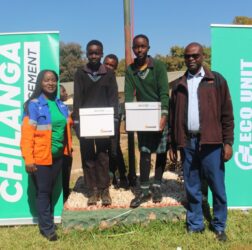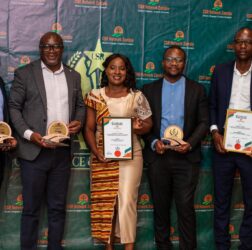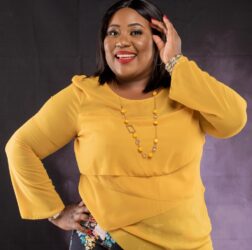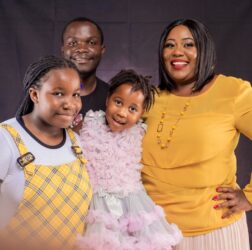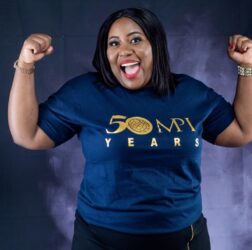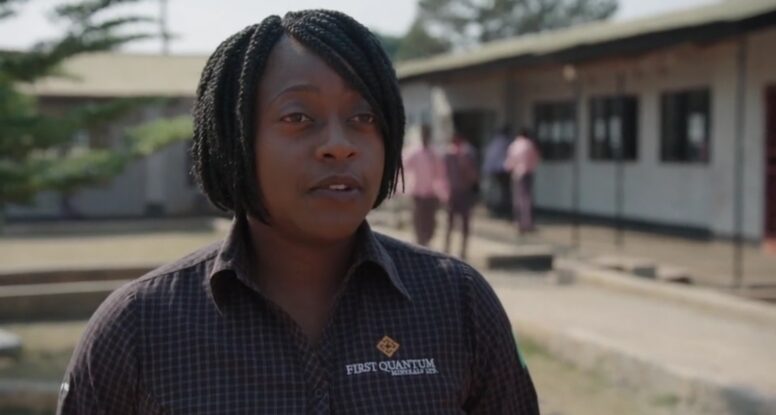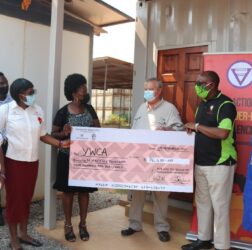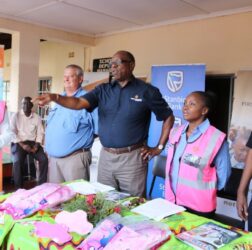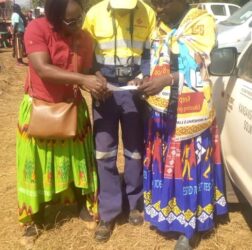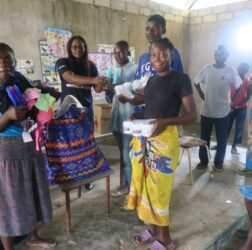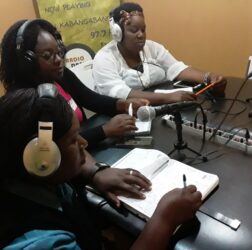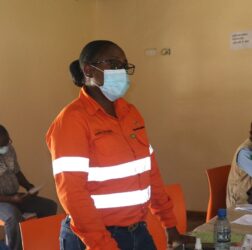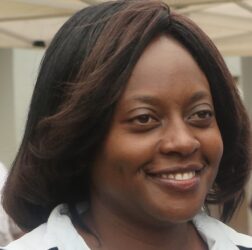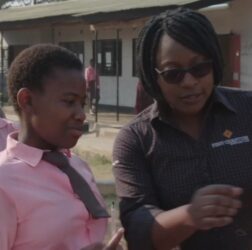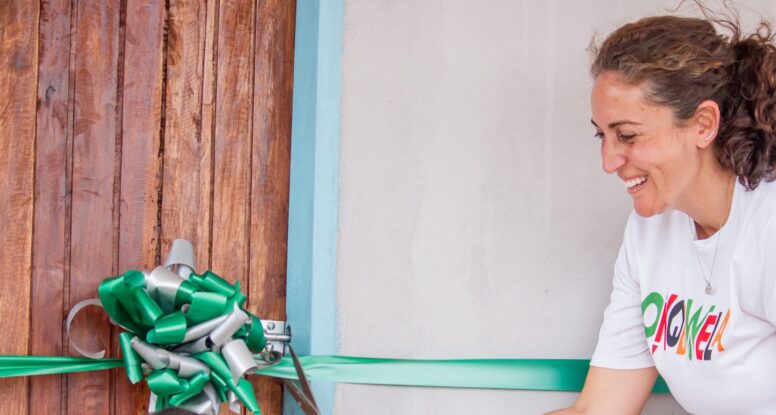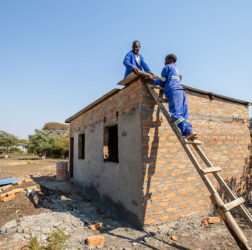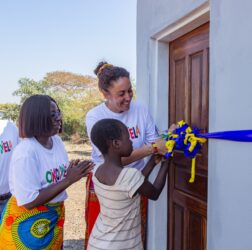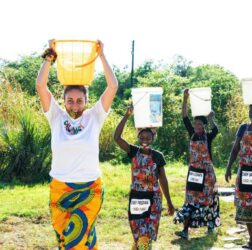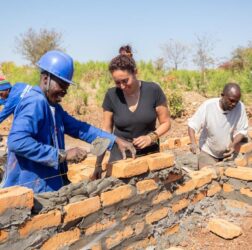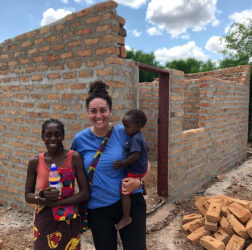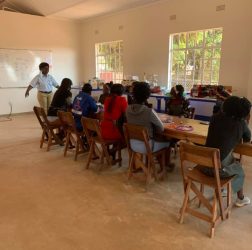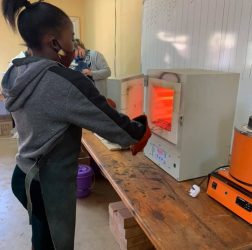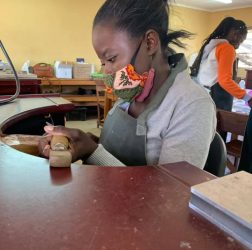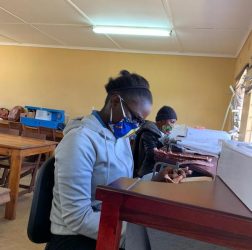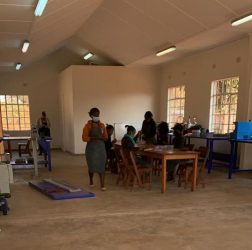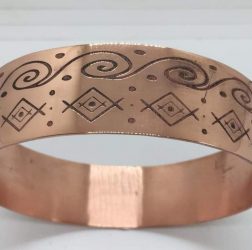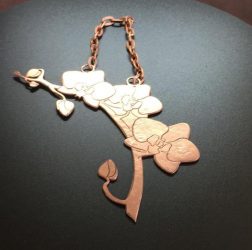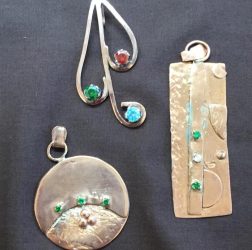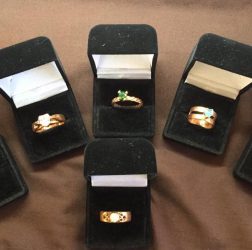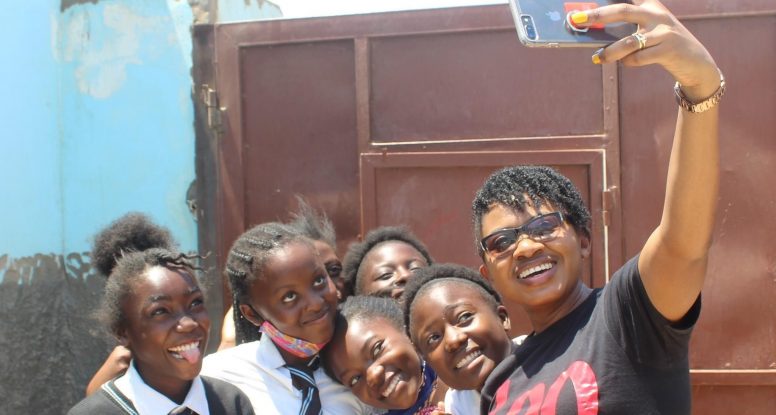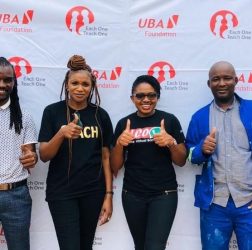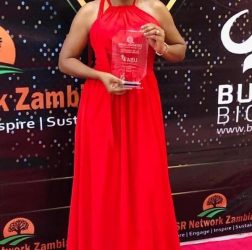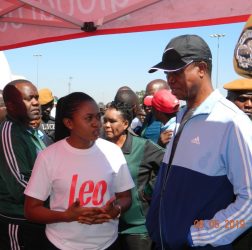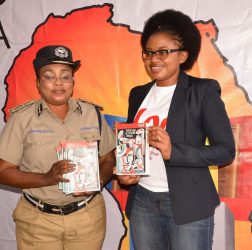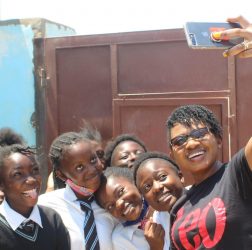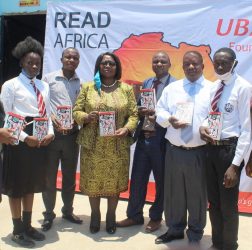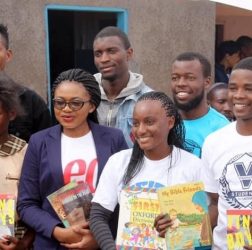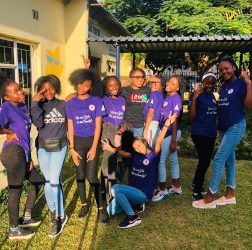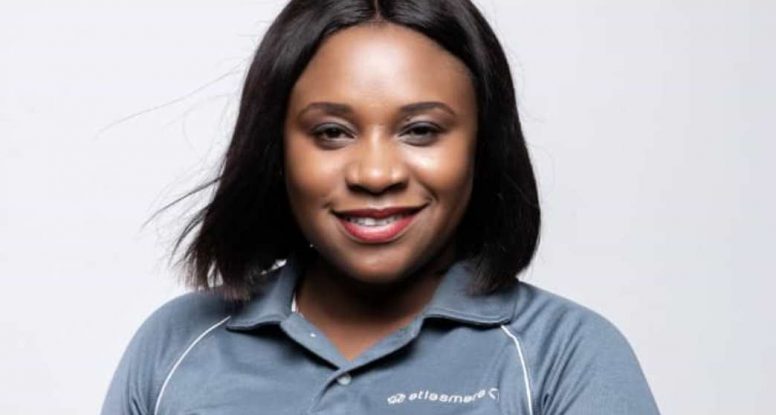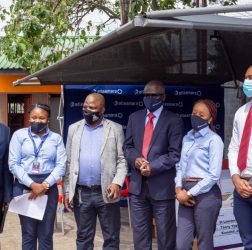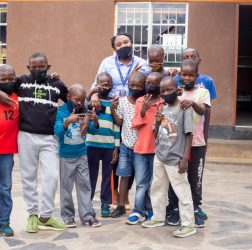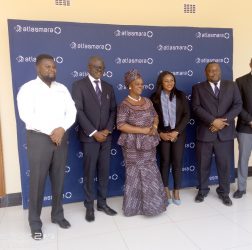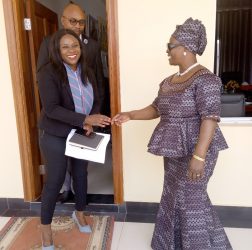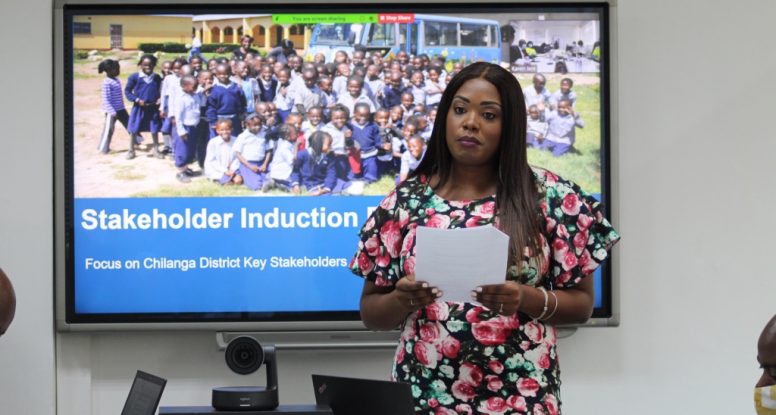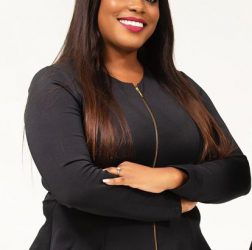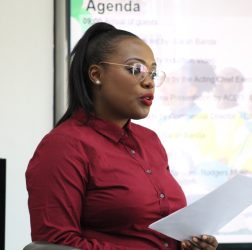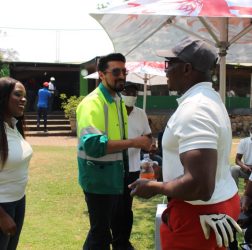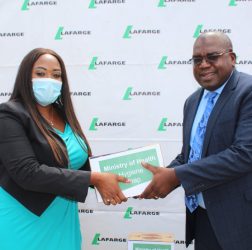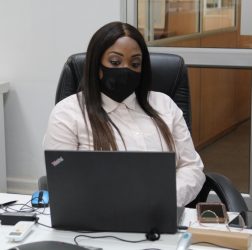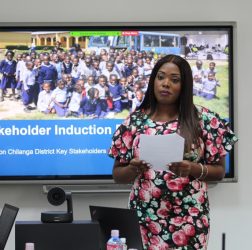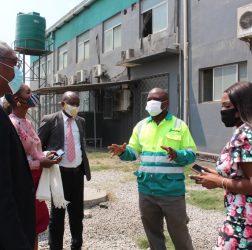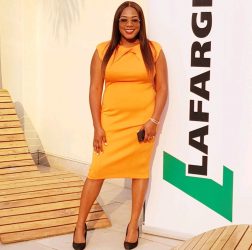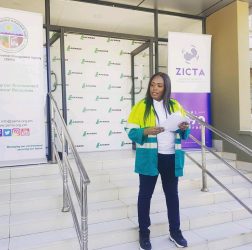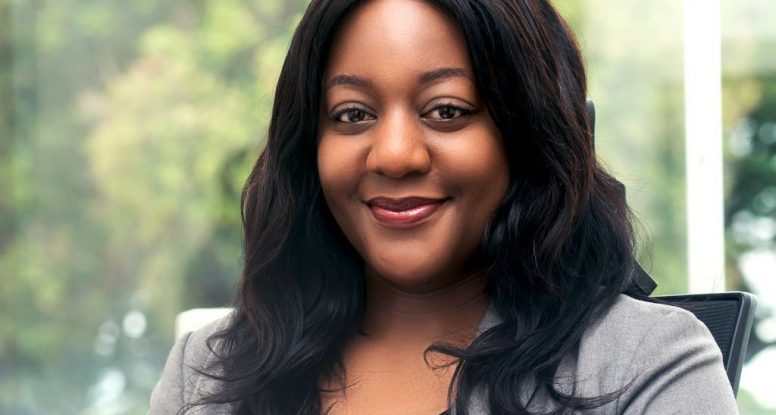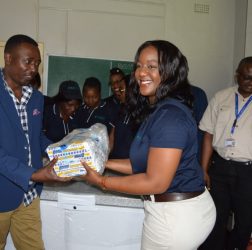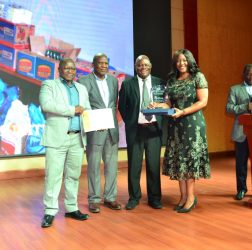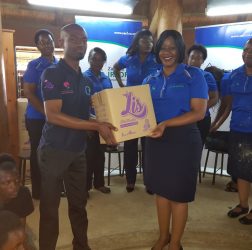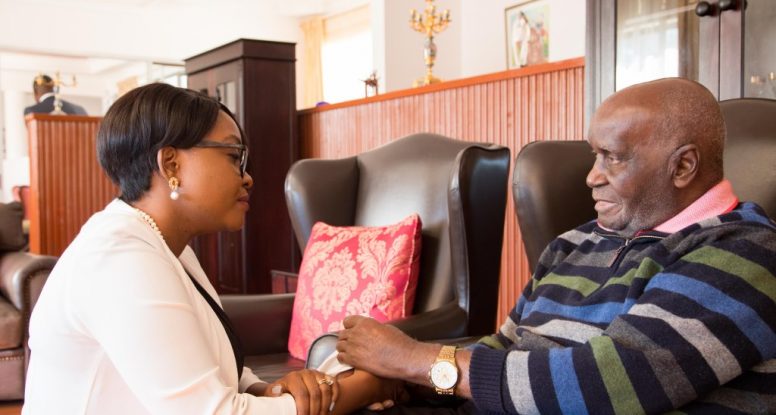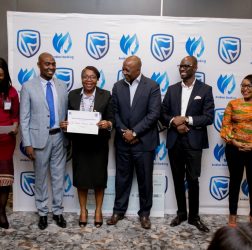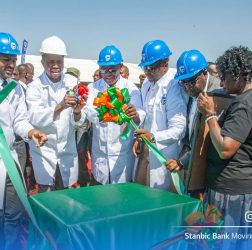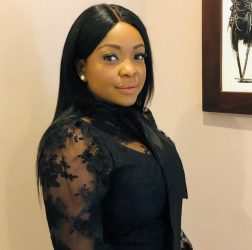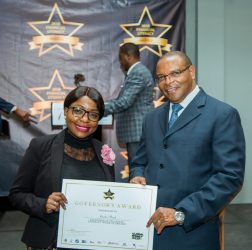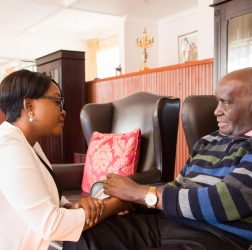In celebration of the remarkable contributions and unwavering dedication of women leaders in CSR, we are proud to launch our Women in CSR Spotlight Series for 2024. This series aims to shine a light on the achievements, experiences and insights of influential women who have made significant strides in driving positive change and sustainable impact within their organizations and communities.
Our inaugural spotlight for 2024 falls on Claire Chibesakunda, a seasoned chartered accountant with over 17 years of experience in accounting and 3 years in General Management. In 2021, Claire took on the pivotal role of heading the ECO Unit, a waste management brand for Chilanga Cement. Under her leadership, the ECO Unit has navigated complex environmental challenges, managing various types of waste with a strong focus on sustainability and regulatory compliance.
Claire’s journey exemplifies resilience, adaptability and a steadfast commitment to environmental stewardship. As we tell her story, we uncover the lessons learned, the hurdles overcome, and the vision for a more sustainable future. Join us as we celebrate Claire and other remarkable women making a profound impact in the field of CSR.
Read her full interview below:
Tell us about your journey into the corporate world and what motivated you to focus on Corporate Social Responsibility (CSR).
I am a Chartered accountant by profession with over 17 years experience in accounting and 3 years experience in General Management. I was appointed in 2021 to head a waste management brand for Chilanga Cement which included managing its P&L. The ECO Unit business deals with different types of waste, some attract a gate fee as prescribed by regulations around handling of hazardous waste. Due to our focus on the environment, most of the CSR projects that we undertake are environmental. My Journey keeps evolving as each year comes with new opportunities.
CSR has evolved from just being charity work but it is now focusing more on sustainability. This motivated me to take up this role to see how we could re-think waste for a sustainable future. It allowed me to make a difference. The innovation being used in co-processing this waste gives us the ability to maintain and support the process of waste management continuously and provide certainty for the future.
What inspired you to take on your current role, and how does it align with your values?
The fact that it’s a general management role, allowed me to freely drive my ambitions. With so much going on around the globe on waste management and Climate change, this was an opportunity for me to make a difference in my work and the community.
My values are to impact lives and this resonates well with the role I execute with so much passion especially in the area of awareness, impacting a positive mindset towards the environment. Waste should never be looked at as waste but as a resource, the way we manage it at a personal level can make a huge impact in our drive for a better environment.
Can you share a particularly rewarding CSR project or initiative you have led or been a part of? What made it successful?
The Corporate to Corporate partnership between Chilanga Cement’s ECO Unit department and Nestle Zambia was extremely rewarding. As you may know in a circular economy, materials and resources are used for as long as possible and what cannot be recycled is turned into energy.
A brief background to what the ECO Unit does – ECO Unit is a waste management brand of Chilanga Cement that disposes of waste with a view to energy recovery. ECO Unit partners with the government, organizations, companies, communities as well as individuals in cleaning up the environment by ensuring that waste generated is not taken to the landfill or dump sites.
Nestle partnered with the ECO Unit so that 160 tons of post-consumer plastic waste is collected from the community. After implementing the Nestle project, there has been a positive impact on the communities and a strong message to other corporations that generate waste, especially packaging waste.
Success story
During this partnership, we were able to impact livelihoods as the community through a recycling company that participated in the aggregation of post-consumer plastic waste, and what could not be recycled was channeled to Chilanga Cement for energy recovery. Over 70 tons of post-consumer plastics have been collected, while over 600 families have been empowered.
In summary, the success of CSR initiatives like the one described above lies in effective community engagement, environmental stewardship, economic empowerment, and thorough measurement of impact through both quantitative and qualitative means.
How do you measure the impact of your CSR initiatives, and can you share an example where you saw a significant positive change?
One of the ways we measure the impact of our CSR initiatives is through outcomes in society. e.g. The Nestle project managed to empower over 600 families, while the landfill was spared with over 70 tons of waste that was diverted to Chilanga Cement. This impacted positively families in the community. As ECO Unit we are also looking towards implementing measures to effectively measure reduction in the carbon footprint.
How do you stay informed and inspired about the latest trends and practices in CSR?
Through academic research, industry reports, and publications from reputable sources. Chilanga Cement has continued to engage with stakeholders and participate in CSR-focused conferences, workshops, and industry events. We are keen on following CSR-related news, updates, and discussions on social media platforms and other relevant online communities.
In your opinion, what is the biggest misconception about CSR in the corporate sector?
Companies need to understand that CSR is not only driven by the moral or ethical motivations of the business but also by the legal, regulatory, and market pressures, thus all companies should be encouraged to incorporate CSR in their sustainability profile.

As a woman in a leadership position, how do you advocate for and promote CSR within your organization and to external stakeholders?
Through leading by Example – demonstrating a personal commitment to CSR principles and practices. Integration into Business Strategy – Aligning CSR initiatives with the organization’s mission, values, and business objectives helps position CSR as a strategic priority rather than an add-on or afterthought.
Engagements – Building relationships and fostering dialogue with external stakeholders, customers, investors, and community members. Staying informed about emerging trends, best practices, and stakeholder expectations through ongoing education and research. Engagement ensures that CSR efforts remain relevant and impactful.
And finally, being part of the discussions and meetings that take place in the board room. I use this opportunity to lobby for sponsorship of projects impacting the environment.
Can you discuss a time when you had to advocate for a CSR initiative? What challenges did you face, and how did you overcome them?
I have not faced any major challenge considering that Chilanga Cement is a seasoned supporter of CSR and every year there is a deliberate budget that is put aside for such works.
However, as an individual you always want more and so we keep pushing for more. The greatest challenge is having enough resources. The other challenge is around measuring impact and providing evidence-based data and metrics to demonstrate the potential benefits and return on investment of the CSR initiative. At times can be a challenge thus allocation of resources and prioritizing implementation can be a challenge.
How do you mentor or support other women in your organization to take an active role in CSR?
My support to women in the workplace has been around involving them every time we have an initiative. I involved women, especially from Finance those that I worked with to be ambassadors of the ECO Unit. Where possible I promote visibility and recognition by recognizing and celebrating the contributions of women leaders in my team through awards, speaking opportunities, and thought leadership platforms to help raise their visibility and inspire others to follow suit.
Looking forward, what emerging CSR trends do you think will shape the future of CSR?
The future of CSR will place a strong emphasis on diversity, equity, and inclusion within organizations. Companies will need to prioritize creating inclusive work in leadership.
Environmental Sustainability: With growing concerns about climate change and environmental degradation, businesses are likely to focus more on reducing their carbon footprint, embracing renewable energy, and adopting circular economy principles.
How do you envision the evolution of CSR in Zambia, and what role do you see women playing in this transformation?
Overall, the future of CSR in Zambia will depend on the collective efforts of various stakeholders to promote sustainable development, address social inequalities, and empower marginalized groups, including women, to participate fully in the country’s economic and social progress.
Collaborative efforts between businesses, civil society organizations, government agencies, and international donors can amplify the impact of CSR initiatives in Zambia, fostering innovation, sharing resources, and leveraging expertise to address shared challenges.
Personal Reflections:
What has been the most profound lesson you have learned through your work in CSR?
I have learned a lot in CSR but what stands out most for me is the collaboration and working together with different sectors of the economy while taking advantage of the value that SMEs bring, large corporates, the government, the manufacturing industries, and a lot of others. In this Circular economy, we need everyone to come on board.
How do you balance the demands of your professional life with your commitment to social responsibility?
Throughout my work experience, the one thing I have learned is how to have a work-life balance, being a wife and a mother of four children, I have come to understand that family and the community around us are what push us to the next level for it is always a joy to see smiles on those faces whenever you go out of your way to do something good.
Is there anything else you would like to share about your CSR journey that we haven’t covered?
ECO Unit has been working very closely with schools to try and enhance environmental awareness. We realize that children grasp concepts easily thus we have deliberately focused on working with schools. Last year we ran a campaign with Chilanga Primary School on the importance of plastic waste separation at source this impacted many households as they were asked to separate plastic waste from domestic waste and bring the plastic from their homes to school which was later collected by the Chilanga cement ECO Unit. This has proved very impactful as waste management requires a lifestyle change. This program will continue in 2024
In addition, I must mention through these initiatives we won the grand prize at last year’s CSR Awards. Chairpersons Award- CSR Innovation of the Year. We also won 1st prize in environmental awareness at last year’s Agricultural and Commercial show and many others too numerous to mention.
What message would you like to leave for young women aspiring to make a difference through their careers, particularly in CSR?
My message to the women out there is that never wait until you have a lot before you can render support, in the little that you have you can change lives. Let us use our God-given talents, the grace is sufficient only to those that take a step of faith.


